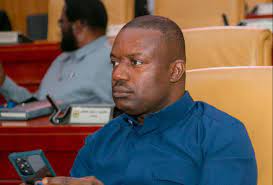Ghana, Nigeria Explore Electricity-for-Gas Barter Agreement

In a strategic move toward boosting regional energy resilience, Ghana and Nigeria are exploring a groundbreaking barter arrangement in which gas would be exchanged for electricity.
At the Future Energy Conference (FEC)—organized by the Africa Centre for Energy Policy (ACEP)—Energy and Green Transition Minister John Jinapor revealed that Ghana is in talks with Nigeria to potentially import gas, convert it into electricity, and then export that power back to Nigeria .
“We believe we can work together. Ghana takes gas from Nigeria, generates power, and re‑exports,” Minister Jinapor stated at the conference .
Ghana already plays a central role in the West African Power Pool (WAPP), supplying electricity to neighboring countries including Togo, Burkina Faso, Côte d’Ivoire, and Benin . The proposed barter deal would deepen energy integration and regional cooperation in West Africa.
Aside from the barter proposal, Ghana is also advancing its nuclear energy programme as a means to secure stable base-load power for the region .
Background & Context
Ghana’s leadership in regional energy integration is underscored by its active participation in the West African Power Pool (WAPP)—an ECOWAS initiative to create a unified regional electricity market . The barter proposal would leverage existing infrastructure, including the West African Gas Pipeline (WAGP), which delivers natural gas from Nigeria to Ghana via Benin and Togo .
Historically, Ghana experienced power supply challenges—famously referred to as “dumsor”—largely due to disruptions in gas supply from Nigeria . This barter deal could potentially reduce such vulnerabilities by formalizing gas supply and electricity reciprocity.
What This Means for the Region
- Enhanced Energy Security: By aligning gas and power trade, both countries could reduce supply risks and improve reliability.
- Strengthened Regional Integration: The barter scheme reinforces collective commitment to shared infrastructure and joint planning.
- Economic Efficiency: Exchanging gas for electricity may yield cost savings and streamline domestic and cross-border energy resources.
- Diversification & Sustainability: Ghana’s embrace of nuclear energy signals a strategic shift toward a diversified and resilient energy mix.
Around the Conference
The Future Energy Conference, held under the theme “Financing Africa’s Energy Future: Unlocking Investments for Energy Access and Economic Transformation,” brought together stakeholders from governments, international institutions, the private sector, academia, and civil society to map out Africa’s energy transition path .
In Summary
Ghana and Nigeria are actively discussing a barter-based energy trade—whereby Ghana would receive Nigerian gas, convert it into power, and send that electricity back as part of a reciprocal energy agreement. This initiative underscores Ghana’s growing influence in West African energy governance and reinforces its commitment to regional integration and energy security. With broader initiatives like its nuclear energy roadmap also gaining momentum, Ghana is positioning itself as a key player in powering West Africa’s future.

